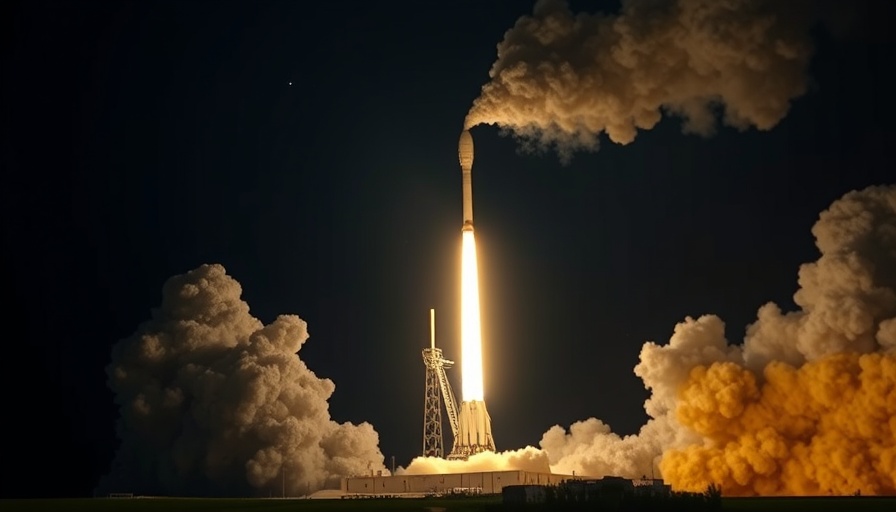
SpaceX Marks Milestone with 26th Falcon 9 Launch
In an impressive feat of engineering and operational efficiency, SpaceX launched its Falcon 9 rocket, carrying 21 Starlink satellites into low Earth orbit during its 26th flight on February 15, 2025. This milestone not only breaks the company's own record for rocket reusability, previously set just last month, but illustrates the rapidly advancing capabilities of space technology. The Falcon 9 lifted off at 1:14 a.m. EST from the Cape Canaveral Space Force Station in Florida, showcasing the reliability and advancement of reusable rocket systems.
The Pioneering Journey of Starlink
The Falcon 9's latest mission emphasized the ongoing development of SpaceX's Starlink satellite constellation, which aims to provide global high-speed internet coverage. With nearly 7,000 operational satellites, this project is increasingly seen as a revolutionary approach to connectivity, especially in underserved areas. Out of the 21 satellites launched, 13 of them are equipped with direct-to-cell capabilities, indicating a robust leap toward integrated communication systems that could redefine how we connect across the globe.
Breaking New Ground with Rocket Reusability
The launch showcased the practicality of reusing rocket hardware, a concept that has the potential to drastically reduce the costs associated with space travel. The Falcon 9's first stage successfully landed on the autonomous droneship, A Shortfall of Gravitas, in the Atlantic Ocean approximately eight minutes after liftoff. This reusability not only makes missions more economically feasible but also aligns perfectly with SpaceX's long-term goal of making space travel more accessible.
A Glimpse into the Future of Space Exploration
With continual advancements, SpaceX's forays into rocket reusability could change the landscape of not just satellite launches, but also crewed missions to Mars and beyond. As the boundaries of technology expand, the potential for cost-effective and reliable space travel becomes increasingly tangible. The success of this launch may set the stage for upcoming ambitious projects aimed at exploring other planets.
Overall Impact and Implications
The success of the Falcon 9 launch on its 26th flight is not merely a corporate achievement; it signals a significant milestone in the evolution of aerospace technology. As SpaceX continues to break records and push the envelope of what is possible in space, other companies are likely to follow suit, leading to an era of rapid advancements in the aerospace sector. This could encourage international collaboration in space exploration and promote further innovations in satellite technology, ultimately enhancing global communication networks.
As we observe these developments, it's evident that SpaceX is not just about achieving individual milestones; it's about paving the way for a future where space travel and connectivity are seamlessly integrated into our daily lives.
 Add Row
Add Row  Add
Add 




Write A Comment